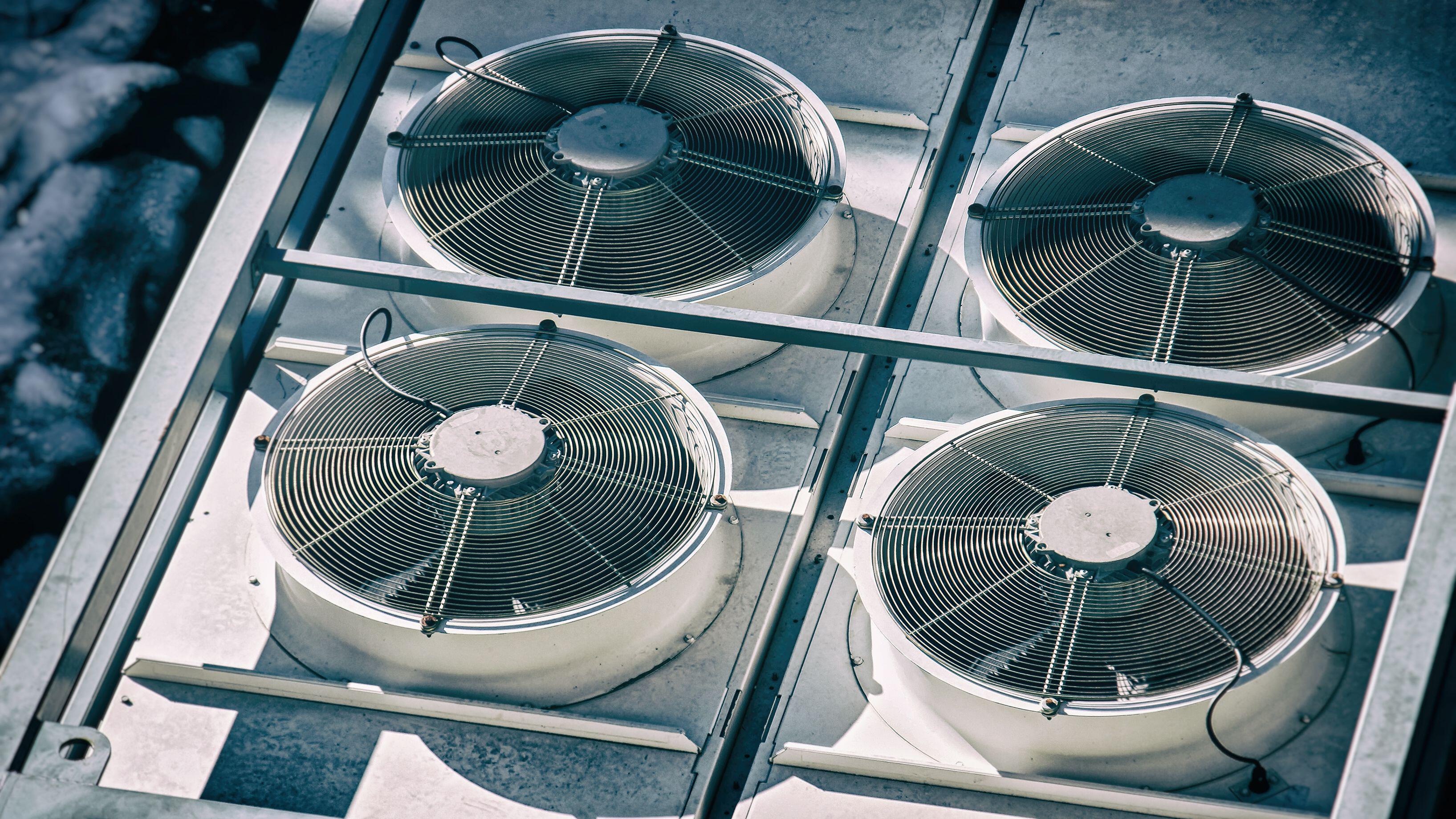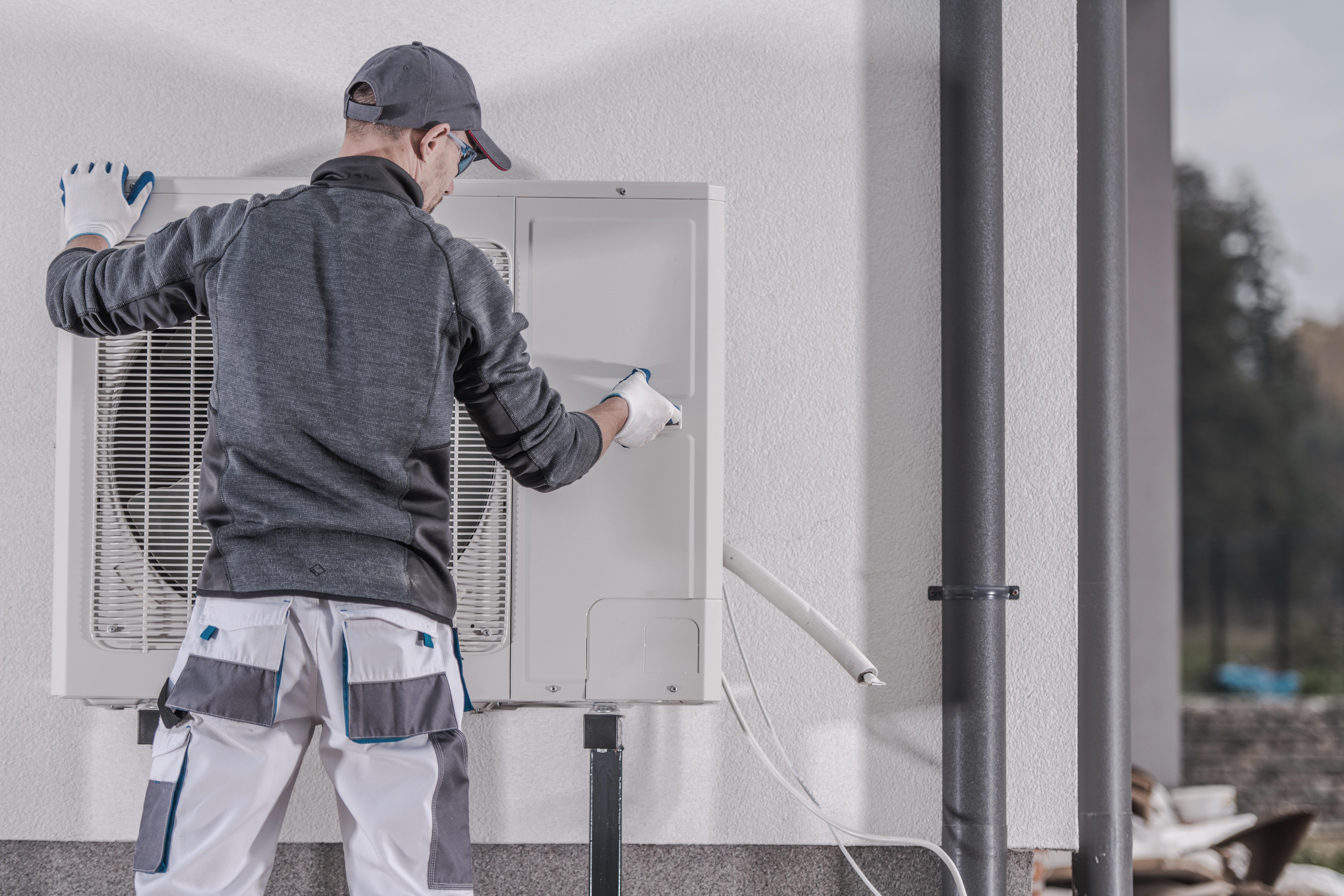
With gas and oil boilers being phased out in the UK, households looking to replace their heating systems are encouraged to opt for low-carbon, renewable technologies.
Not only are these heating systems, such as heat pumps, better for the environment than oil and gas boilers, they tend to be better for your pocket too.
And on top of that, one-off Government grants of up to £7,500 are available to make heat pumps more affordable.
The Energy Saving Trust says there are two main types of heat pump: ground source and air source, plus water source heat pumps, which are less common. These pumps use less fossil fuels than most other systems, so are a more sustainable, low-carbon source of heating.
How do heat pumps work?
Heat pumps extract heat from a colder area (usually outside the property), raise the temperature and then move the heat into your home. And although the pumps use electricity for raising the temperature, they produce much more heat energy than the electrical energy they use, meaning they’re an energy-efficient, low-carbon way to heat your home.

“A heat pump dramatically reduces the carbon impact of your home heating, which is a major reason many people are installing them today,” says Joanna O’Loan, knowledge manager at the Energy Saving Trust.
She explains that heat pumps generally produce around three times more energy than they take in – so they’re 300% efficient, as the heat they provide is harvested from the environment rather than coming directly from an energy source, such as gas.
In comparison, an A-rated gas boiler has an efficiency of around 85%, and oil boilers are 88% efficient, she says.
How many heat pumps have been installed so far?
This month, the MCS (Microgeneration Certification Scheme), the UK’s quality mark for small-scale renewable energy installations, announced that 2024 is already the best year on record for certified heat pump installations in the UK.
In 2023, there were 40,426 certified heat pump installations. The number of installations this year has already exceeded this figure, with more than 42,000 installations from January to the end of September.

Average monthly heat pump installations have risen by 39% compared to 2023, bringing the current number of certified heat pump installations in the UK to nearly 260,000 in total.
And they’re suitable for most homes – O’Loan says a heat pump unit is roughly the size of two wheelie bins side-by-side, and is fitted outside the home. It connects to the home’s radiators, with a hot water cylinder and controller fitted inside the house.
“It’s great to see more consumers across the UK making the switch to heat pumps for their home heating needs,” says Ian Rippin, CEO of MCS, although he stresses progress is still needed to reach the government target of 600,000 installations per year by 2028.
What type of grants are available?
As part of the Boiler Upgrade Scheme (BUS), the government will award a grant of £7,500 towards both air source and ground source (including water source) heat pumps per property.
The Heat Pump Federation points out the increase in the grant – which was £5,000 for air source and £6,000 for ground source pumps in 2023 – has stimulated homeowners’ interest in heat pumps, with a 73% increase in applications in England and Wales from January to June this year, compared to the same period in 2023.
The Home Energy Scotland (HES) grant and loan offers a similar incentive, with grants up to £7,500 for heat pump installations in Scotland.
In Northern Ireland, the Northern Ireland Sustainable Energy Programme (NISEP) offers a 50% discount on air source heat pumps for a limited number of installations as part of a heating upgrade for households outside the gas network.
In Ireland, the Sustainable Energy Authority of Ireland (SEAI) offers grants of up to €6,500 for homes and €4,500 for apartments to help homeowners install heat pumps.
Will heat pumps save you money in terms of bills?
Daniel Särefjord, CEO of clean energy tech company Aira UK says: “Replacing your gas or oil boiler with a heat pump is the single most important change any household can make to reduce their energy consumption and carbon emissions.
“Benefits include energy-related savings of up to £560 per year when coupled with a heat pump-optimised electricity tariff, and a 100% reduction in your home’s carbon emissions, which is great for your pocket and the planet.”
However, whether a heat pump will save you money in the long-run largely depends on what heating system you’re replacing, and what energy prices will be like in the future, says O’Loan.
She explains that because heat pumps are powered by electricity, under Ofgem’s current energy price cap, electricity is around four times the price of gas per unit. This means the running costs of a newer, efficient gas boiler and a heat pump are roughly equal at the moment, she says, although heat pumps are much more environmentally-friendly.
“If your gas or oil boiler is older and inefficient, and you install a very efficient heat pump system while removing your gas meter and associated standing charges, the heat pump could be significantly cheaper to run,” she says.
“If electricity and gas prices were to change, with electricity becoming closer in price to gas, heat pumps could become cheaper to run.”
John-Paul Drake at Love Energy Savings, which helps people save money on energy, explains that air source heat pumps are cheaper to install than other types of heat pumps, typically costing between £7,000-£10,000 to buy and install – although the type, size and efficiency of the heat pump can affect the price and running costs.
A gas boiler costs around £2,000-£4,000 to buy and install, he says, but will cost more in bills and typically need replacing after 10 years.
“Although upfront costs are more expensive than a typical gas boiler, heat pumps have a lifespan of 20-25 years, which makes them a smart long-term investment,” he says.
“Due to the greater efficiency of an air source heat pump, you can expect to save up to £400 on your annual energy bills compared to a gas boiler, but only if your home is properly insulated, otherwise you could end up spending more in the long-run.”







